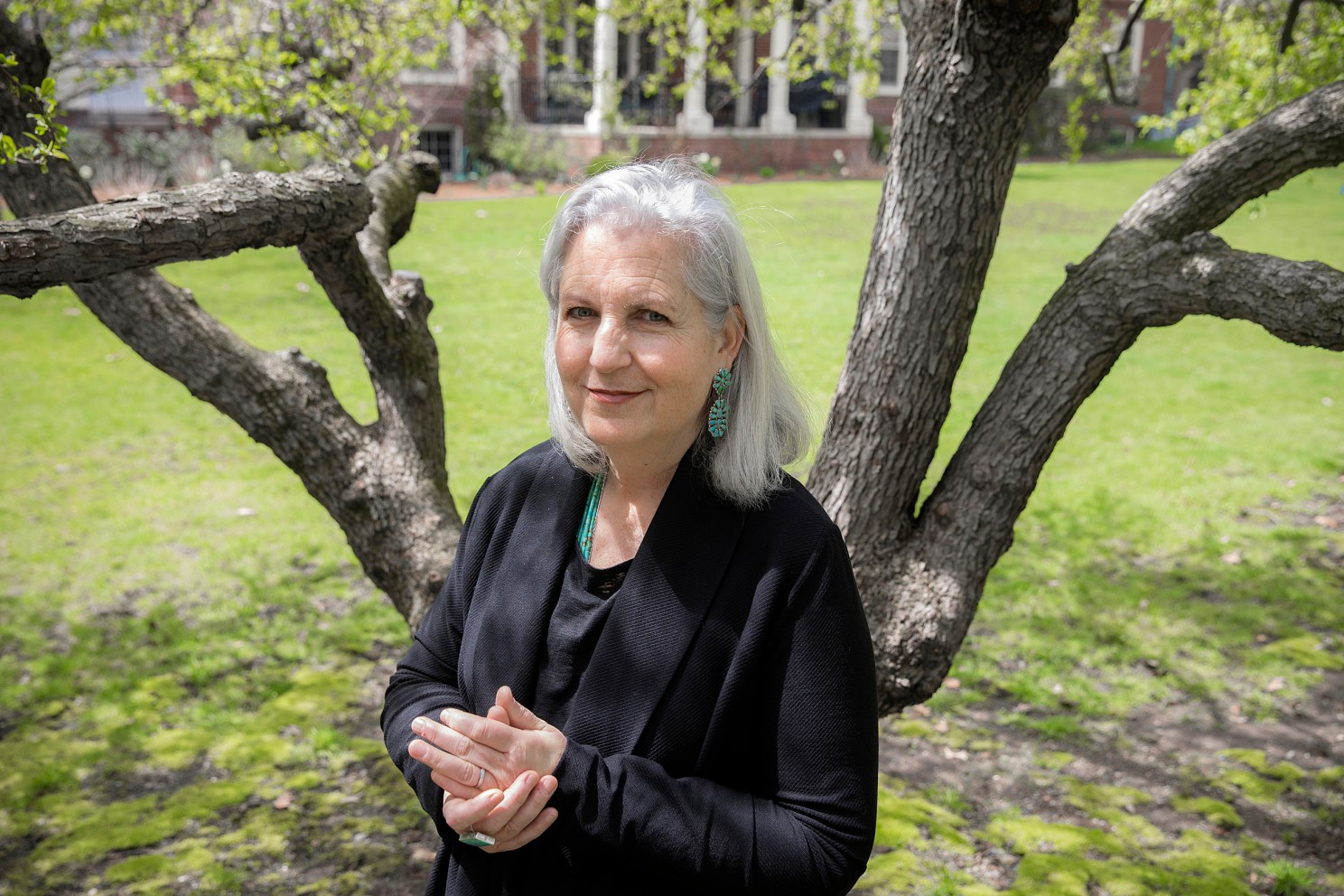Divinity School writer-in-residence wins book award

Writer and environmentalist Terry Tempest Williams is writer-in-residence at the Divinity School. Kris Snibbe/Harvard Staff Photographer
The Los Angeles Times announced Feb. 21 that one of its prestigious book prizes will be presented to Terry Tempest Williams, Harvard Divinity School’s (HDS) writer-in-residence.
According to the Times, Williams will receive the Robert Kirsch Award, a lifetime achievement prize “given to a writer with a substantial connection to the American West.”
Williams has been called “a citizen writer,” who speaks out eloquently on behalf of an ethical stance toward life. A conservationist and advocate for freedom of speech, she has consistently shown how environmental issues are social issues that ultimately become matters of justice.
In announcing the award, Julia Turner, the Times’ deputy managing editor for arts and entertainment, said of Williams: “With issues of the environment and climate change becoming increasingly urgent, what better moment to recognize someone who has focused her creative life on writing about the land and fighting for environmental issues in the most elegant and articulate way?”
At HDS, Williams writes about the spiritual implications of climate change, teaches courses, including the popular “Apocalyptic Grief, Radical Joy” co-taught with Matthew Potts, and leads seminars at the Center for the Study of World Religions with HDS students.
Williams has also given numerous public talks during her time at HDS, including “Barren Landscapes and Open Spaces,” which examined how our views of land and landscape influence our religious imagination, and “The Liturgy of Home,” in which she asked: “What might a different kind of power look like, feel like, and can power be redistributed equitably even beyond our own species?”
“No one has written more beautifully about the importance of environmental sustainability and spiritual advocacy in an era of climate change than Terry Tempest Williams,” said Dean David Hempton in announcing her HDS appointment in 2017.
Williams’s most recent book, “The Hour of Land: A Personal Topography of America’s National Parks,” was published in 2016 to wide acclaim. In 2006, she received the Robert Marshall Award from The Wilderness Society, its highest honor given to an American citizen. She also received the Distinguished Achievement Award from the Western Literature Association, as well as the Wallace Stegner Award given by the Center for the American West.





